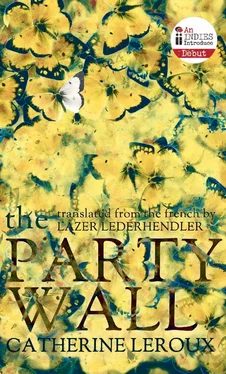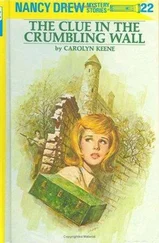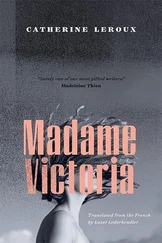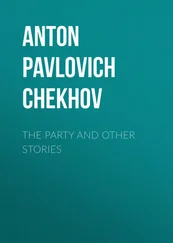The trip back is unusually quick. It’s the kind of day when the clouds blot out the light an hour earlier than the normal twilight time. She parks in front of the house, and it seems to her that space has been hemmed in and the sky has shrunk. Everything is closer, everything is within reach. Once inside the entrance hall she finds Yun waiting for her in the rigid pose of a pointer.
“Édouard took a spill. He felt faint riding his bicycle.”
“What do you mean, on his bicycle? Where is he?”
“They took him to Caraquet. They said not to worry — just a few cuts and bruises.”
“Let’s go.”
As they are leaving, she glances at Shabby curled up in the armchair, deaf to the fuss, one paw resting nonchalantly on a geology textbook that once belonged to Micha. “You watch over him,” she silently orders the hundred-year-old walls that for generations have supported and guarded, divided and kept watch.
On one level, the paramedics were right. Édouard’s wounds are only superficial. But the consequences turn out to be disastrous for him. The fact he is no longer allowed to leave the house makes him even sicker than do his damaged kidneys. Constantly in a foul mood, he spins his wheels and kicks at Shabby, refuses to shave, and never opens his mouth except to whine. Only Yun succeeds in cheering him up. They spend long hours sprawled on lounge chairs looking at atlases, maps, and out-of-date travel guides, plotting like conquistadores about to take over a continent. Madeleine watches them from a distance, praying for something to happen: a phone call, an earthquake, a stray musical note that would stave off the immobility, the black prism through which the nascent summer is being tarnished.
A warm front arrives, in no way intimidated by the icy currents of the Atlantic. Madeleine finds nothing better than to try to keep the heat at bay with the help of a fan whose red paint chips with every stroke. The cat seems shabbier than usual, its fur weighed down and left misshapen by the humidity. All its pleas to be petted are ignored. In any case, its mistress feels completely incapable of doing anything. The heat wave has taken upon itself to stupefy everything still moving.
Still, she leaps to her feet when the telephone rings. It may be the kidney. It may be Paul, who’s recovered his bees. It may be a foghorn. She answers. Her doctor’s voice sounds different. She has known it to be cold, firm, tinged with a hint of accusation, then contrite, inquisitive, buoyed by scientific curiosity. This time it is gentle, incredibly gentle and friendly. When he suggests they meet on the beach instead of in the hospital she knows that what he needs to tell her is something he has never had to tell anyone before. She takes the road to the village, on foot, like a vagabond. She walks all the way to the sea.
The doctor is barefoot.
“It’s incredible,” he says. “I came to practise in Bathurst because I love the sea, yet in five years I’ve come down to the shore just two or three times.”
“Too busy?”
“I forget. The beach is never too far away, but it doesn’t occur to me anymore. It’s silly.”
The waves envelop his feet in seaweed. He shakes it off, steps closer to Madeleine, and leads her to a sea-washed tree trunk, where he invites her to sit down.
“As you know, Madeleine, we’ve been trying for weeks to understand your situation, which is quite particular, not to say extraordinary. The team at the Chaleur Hospital was struggling to find an explanation, so I paid a visit to some colleagues in New York State who specialize in genetic research. They’re the ones who helped me find answers to our questions. I’ve just come back from that little trip and I called you right away.”
Madeleine notices the clean, undamaged suitcase sitting on the sand. Nothing like the luggage of her son and people of his ilk. The doctor takes a deep breath, as if about to dive into deep water.
“You are two people.”
His tone is meant to be solemn, but the statement is too preposterous.
“What do you mean by that?”
“I mean there are two distinct DNA’s inside you because your body contains two human beings.”
Madeleine opens her mouth and the offshore wind rushes into too quickly, making her cough.
“How’s that possible?”
The doctor opens his briefcase, rummages through papers that apparently have nothing to do with Madeleine’s case specifically, but this sort of diagnosis must be supported by documentation, any documentation.
“It appears you have a twin sister with whom you merged in utero . Actually, it’s inexact to say ‘you had a twin sister.’ It would be more accurate to say, you are twins. Because one did not invade the other. You are two equal and indissociable parts of a whole.”
Madeleine stands up, unable to utter another word. Her heels dig into the sand, and she has the sensation of being aware of them for the first time in her life. She starts weeping.
“You’re not the only one,” the doctor adds by way of consolation. “There are a few, very rare but very real, documented cases. Patients who are in this situation are referred to as chimeras.”
“A chimera,” Madeleine mumbles. “Science was obliged to draw on mythology to describe what I am.”
“One of the twins took over the circulatory system, the other the skin and hair, and so on. You might say that you divided up between you the different zones of the same body.”
“Mine or hers?”
“Yours. Both bodies. Let me try to explain it this way: if the merger process had not been completed, you would have become Siamese twins. You see? Inside you, there’s the same separation that exists between two individuals, two twins. The partition is simply imperceptible, because there’s just a single body. And a single brain, of course.”
Stunned, Madeleine opens her hand and runs her fingers over her belly, her arms, her legs, endeavouring to distinguish two women where there is only one. It seems to her that by playing the arbiter of her own body she has just added a third term to the equation. The truth that she is doing her best to grasp explodes in her mind. Stepping into the water, she looks down at her distorted toes. “A foot for one, a foot for the other,” she murmurs, knowing this to be inaccurate. “The skin of one, the blood of the other. Bones versus hair. The nails but not the muscles.” The doctor comes next to her, briefcase hanging from his hand, trousers rolled up to the knees.
“Do you have any questions?” he asks softly.
“Hundreds!” Madeleine shouts through her tears. “At least tell me this: who is Édouard’s mother?”
“Well, I guess it’s the one who took possession of the reproductive system. The same one who’s in your hair. But not in your blood.”
“So you weren’t entirely wrong. I’m not quite his mother.”
“Which ‘I’ are you referring to? Your ‘I’ includes Édouard’s mother, Madeleine. In any case, I think such distinctions fade away once you get past yourself.”
The tide has risen at least a metre. When the doctor leaves, Madeleine slumps down in the water. Her skirt forms a shifting corolla around her and she could swear her ribs are dancing on either side of her spine and her limbs are out of joint. As if her body must deconstruct itself for her to be able to grasp it, compute it anew.
“I am two, I am two, I am two,” she repeats, knotting her fingers together in a frenzied prayer in order to decipher in that entwinement the shadow of something manifest. “I am twins,” she adds, disconcerted by the realization that the only way to speak the truth about herself is to defy grammar.
After an hour, maybe two, the words get lost. She lets herself flow in the back and forth of the water; she wraps her arms around herself and tries to hug her trunk, to embrace all of herself. In the distance, the shape of a boat emerges from the waves. A small isosceles sail and at the foot of the mast a creature whose black hair slants in the wind. The silhouette waves her hand, a greeting that Madeleine readily answers, knowing for certain it is Yun.
Читать дальше











